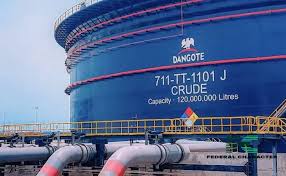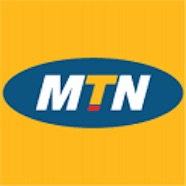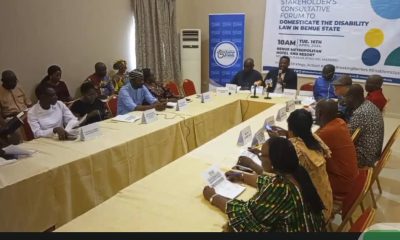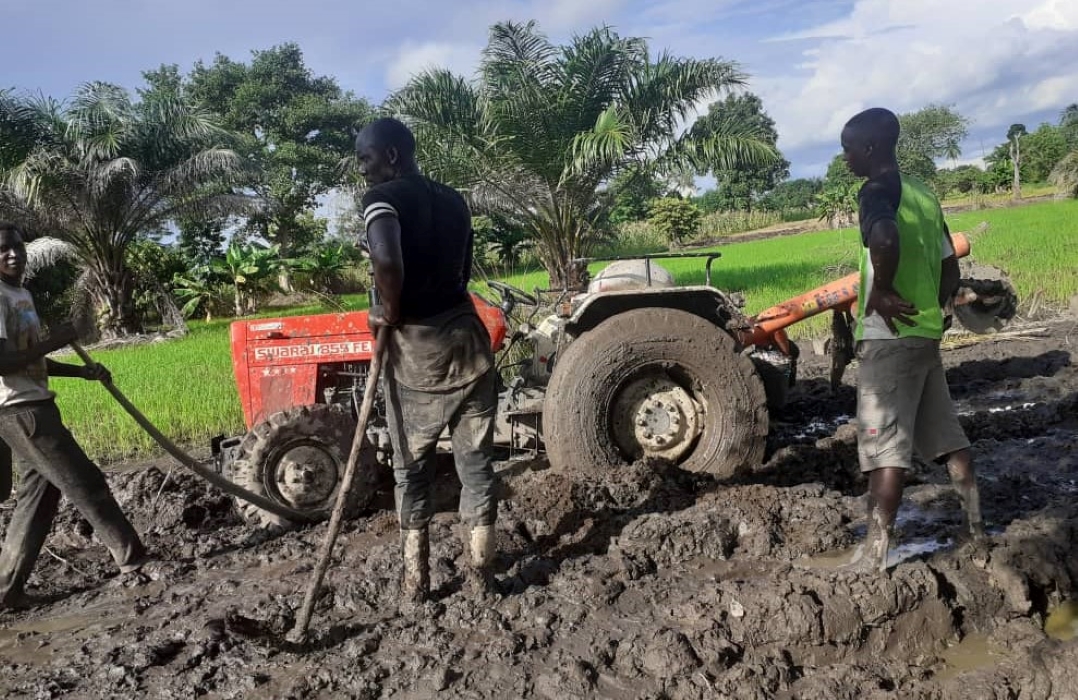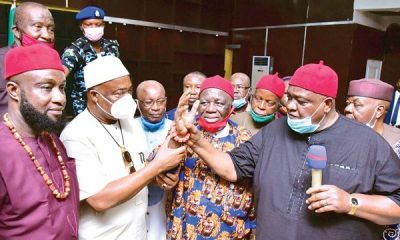Business News
Dangote Canvasses Dismantling of Trade Barriers Among African Countries

Africa’s foremost entrepreneur and President of the Dangote Group, Aliko Dangote has urged African countries to dismantle all economic barriers hindering free trade among the nations, in order to achieve sustainable growth and development across the continent.
The leading private sector player also expressed the irrevocable commitment of his Pan-African conglomerate, Dangote Industries Limited to solving some of the economic challenges faced by the African continent and her people.
To realise this goal, the organisation has committed over 20 billion dollars on investments in several key sectors of the African economy.Speaking in Lagos at the launch of a Special publication “The World Ahead 2023” by the renowned media outfit, The Economist, Dangote, who was represented by the Group Executive Director/Group Chief Risk Officer, Dangote Industries Limited, Dr.
Adenike Fajemirokun, noted that the crucial task of building a sustainable future that guarantees equitable growth and prosperity for all, should not be the exclusive role of the public sector alone, but should also involve the private sector.“Our massive investments of over 20 billion dollars across key industries, including Energy, Agriculture, and Infrastructure. Our recently commissioned 3Million Metric Tonnes’ Fertiliser Plant, expansions in cement production, and our soon-to-be commissioned 650,000 barrels per day world’s largest single-train refinery, are all set to empower farmers, foster backward integration, create thousands of jobs, eliminate our dependence on imported products, and improve our nation’s foreign exchange earnings significantly.

Dangote who made this disclosure said the massive investments were meant to turn around Africa’s economic fortunes in the quest for sustained economic growth of the continent through free trade and economic integration.
“We are also confronting environmental issues through our investment in alternative fuels, as well as unlocking enormous opportunities in the communities where we have our footprints, while ultimately ensuring that we keep delivering huge value to our shareholders.
“The multilayered issues that we face globally and across regions today, ranging from rising energy costs, food insecurity, supply-chain disruptions, access to quality healthcare, cybersecurity, inflation amongst others brought about by the pandemic or other human factors like the Russia-Ukraine war, call for an objective rethink of geopolitics and geo-economics, especially as they vastly affect policy execution and the ease of doing business in more vulnerable economies,” he stated.
Drawing the attention of the international audience to the need for all hands to be on deck towards lifting Africa above the various socio-economic challenges facing the member-countries, Dangote pointed out that the African population has been growing exponentially.
“Nigeria, for instance, is projected to be the world’s third largest population by 2050 surpassing the United States, only behind India and China, so the question of sustained economic growth has become increasingly critical and isn’t one for a single sector to tackle alone. To secure the future of our country and our continent we must forge strong public-private partnerships and dismantle regional barriers with vehicles like the African Continental Free Trade Agreement (AfCFTA).”
Dangote advised that “going forward, the overarching conversations, whether at global or regional levels, in emerging markets or in OECD countries, must be refocused towards exploring the specifics of our fast-changing world, in order to align public-private perspectives and identify areas for collaboration for the collective good of people, planet, and profit.”
He commended ‘The Economist’ for putting together the publication that was being launched, describing it as a rich body of work that offers useful data for all sectors to draw insights from and synthesize the same towards arriving at cutting-edge action points.
In his remarks, Lagos State Deputy Governor, Dr. Obafemi Hamzat described the publication as a valuable document for policymakers and strategic planners, and noted that its contents reaffirm part of the strategies the Lagos State government has executed to make Lagos assume its status as the preferred destination of choice for investors.
According to him, Lagos has just 0.4 per cent of the land mass of Nigeria but has 11 per cent of the country’s population, which explains why some of the challenges in Lagos are peculiar to the metropolis, disclosing that some of the strategies adopted by the state government are geared toward solving the challenges.
He said Lagos is Africa’s fastest growing economy and added that a key policy of the state government is to improve its investment profile by providing an enabling environment. Hamzat also noted that the state has invested billions of Naira in infrastructure and technology, citing the Lekki Deep Seaport as one of the enablers which has made Lagos to attract 60 per cent of the Foreign Direct Investment into Nigeria.
Also speaking, the Regional Executive and Managing Director of Ecobank Nigeria Limited, Mr. Mobolaji Lawal hailed the Economist special launch, as it provides an opportunity for knowledge sharing for the government and private sector to explore emerging opportunities in the digital space.
“If we get it right, it will stimulate growth and drive transformation and ensure economic growth”, the Ecobank boss stressed.
Business News
Afreximbank Closes $282 million India-focused Club Deal

By Tony Obiechina, Abuja
The African Export-Import Bank (Afreximbank) has announced the successful completion of a first-of-its-kind India-focussed club deal for US$282.00 million.
Initiated for the exclusive participation of Indian lenders, and arranged by Bank of Africa UK PLC, the primary syndicated club deal saw participation from Indian lenders through their overseas branches and subsidiaries in the Dubai International Financial Centre in the United Arab Emirates, Singapore and Mauritius.
The facility, which was backed by six participating banks and financial institutions, including five that joined as first-time lenders to Afreximbank, helping the Bank achieve its objective of diversifying its funding sources, carries a three-year tenor.
At a commemorative event held in Dubai, U.A.E., to mark the conclusion of the deal, Haytham ElMaayergi, Executive Vice President at Afreximbank, said that the conclusion of the initiative represented a major milestone for the Bank as it sought to fulfil the key objectives of its funding programme.
Highlighting the importance of investing in, and for, Africa, Mr. ElMaayergi said: “this facility will help Afreximbank to continue to play a major role in the development of intra-African trade and trade between Africa and the rest of the world, particularly with India.
It is a testament to the rapid growth in Africa’s economic relationship with India and is evidence of Afreximbank’s growing ability to harness resources into Africa and to fund trade finance related investments that would have a positive impact on trade between Africa and India.”
Chandi Mwenebungu, Director and Group Treasurer of Afreximbank, reviewing the Bank’s vision for Africa, said that its funding objectives included achieving the diversification of its liability book by geography, investor type and tenor.
Also addressing guests at the event were Said Adren, CEO of Bank of Africa UK PLC, who thanked the lenders for their participation, and Zineb Tamtaoui, General Manager of Bank of Africa, Dubai Branch, who expressed appreciation for the opportunity to put together “a landmark deal that would be a stepping stone to many India-focused club deals going forward.”
Business News
Geregu Power Earns N50.4bn From Electricity Sales, Capacity Charges
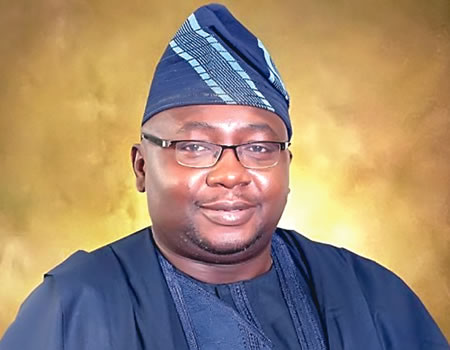
By Tony Obiechina, Abuja
Geregu Power Plc has generated N50.4bn on electricity sales and capacity charges to Nigerians in the first quarter of 2024.
The power company which is the first listed power company of the Nigerian Exchange Ltd disclosed the performance in its Q1, 2024 financial statement.
The company grew its Q1 revenue by 225 per cent from N14.
2bn in 2023 to N50. 4bn in 2023.A breakdown reveals that Geregu Power sold energy worth N31bn and received N19bn as revenue from capacity charge.
Recall that the power company posted an annual revenue of N82.9bn in the full year of 2023 but it has covered half of the amount in Q1.
The revenue was above the company’s forecast for Q1 2024 when it projected its revenue to rise to N31.24bn.
Geregu Power recorded a profit before tax of N21.9bn up from the N5.3bn recorded in Q1 of last year, reflecting 307.8 per cent growth.
During the period underreview, the company saw its profit after tax rose by 307.3 per cent to N14.46bn from N3.54bn recorded in Q1 of last year. In the full year 2023, the company made N16.1bn net profit.
The net profit was above the company projection of N5.5bn.
Geregu Power took an income tax charge of N7.43bn, up from the N1.8bn in Q1 2023. The tax charges were higher than the N2.7bn projected for Q1 2024.
The company also spent N21.5bn on the cost of sales involving gas supply and transportation, up from the N6.6bn spent on gas supply and transportation in Q1 2023.
Business News
CBN Shakes Up Banking Sector: A Paradigm Shift Unveiled

By Ademola Oyetunji
In a surprising turn of events on Wednesday, the Central Bank of Nigeria (CBN) dissolved the boards of three prominent commercial banks – Keystone, Polaris, and Union Bank. This move, although unanticipated, transpired despite the Central Bank’s recent endorsement of these banks’ financial soundness.
Governor Olayemi Cardoso, at his inaugural address during the Chartered Institute of Bankers of Nigeria (CIBN) annual dinner last year, had lauded Nigeria’s financial sector’s resilience in 2023.
Stress tests conducted on the banking industry indicated its strength under various economic scenarios. However, Cardoso highlighted the need for banks to reassess their responsible banking framework, a sentiment echoed by President Tinubu.President Tinubu’s evident discontent with the Godwin Emefiele-led CBN triggered a comprehensive review of the financial system. A special investigator, Jim Obazee, was appointed to conduct a forensic investigation into Emefiele’s tenure, with damning revelations emerging. Recent developments suggest the initiation of a full-blown financial system reform.
The CBN’s dissolution announcement and the subsequent appointment of new executives for the affected banks, including Yetunde Oni, Mannir U. Ringim, Hassan Imam, Chioma A. Mang, Lawal M. Omokayode, and Chris Onyeka Ofikulu, might mark the beginning of implementing the investigation’s recommendations – a significant cleanup of the financial sector.
Allegations surfaced during the investigation, suggesting non-cooperation from some bank executives and Emefiele’s questionable acquisitions through proxies and cronies. Cardoso may have secured presidential approval for the CBN’s decisive action.
The CBN cited various infractions by the banks, including regulatory non-compliance, corporate governance failures, and activities threatening financial stability. Despite the challenges, the CBN assured the public of depositors’ fund safety and its commitment to upholding a safe, sound, and robust financial system.
The Special Investigator’s report revealed documents pointing to Emefiele’s involvement in Titan Trust Bank and Union Banks’ acquisitions with ill-gotten wealth. The CBN’s swift replacement of the ousted chief executives received widespread commendation, especially from high-net-worth stakeholders aiming to avert a crisis of confidence within the affected banks.
Adewale Aderounmu, an industrialist, applauded the CBN for implementing effective policies under Olayemi Cardoso’s leadership, despite detractors’ actions against the Naira. Ayomide Deepak, an Abuja-based stockbroker, welcomed the action but emphasized the need for caution in handling revelations from the investigation to prevent further economic challenges.
As the CBN wields its regulatory hammer on these banks, the hope is that other bank executives and investors will learn valuable lessons for the sake of the economy. The CBN’s action is perceived as a strategic move aimed at revitalizing the economy and financial system, not a mere vendetta.
*Ademola Oyetunji writes from Ibadan.

